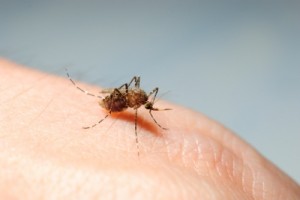 There’s an old adage about the mosquito in the state of Florida. Many jokingly call the mosquito the Florida state bird. However, this year the state bird is trying to take over. The reports indicate that the mosquito problem is the worst in ten years. It’s a problem that cities can hardly keep up with, especially in the southern part of Florida. And this is leaving some citizens frustrated.
There’s an old adage about the mosquito in the state of Florida. Many jokingly call the mosquito the Florida state bird. However, this year the state bird is trying to take over. The reports indicate that the mosquito problem is the worst in ten years. It’s a problem that cities can hardly keep up with, especially in the southern part of Florida. And this is leaving some citizens frustrated.
There is always great concern that heavy mosquito infestations could increase the likeliness of disease. Awareness of mosquito-borne disease can be very useful.
Mosquitoes and Disease [Source: University of Florida]
There are three very important mosquito-borne diseases that occur in Florida: Eastern equine encephalitis, St. Louis encephalitis, and West Nile fever/encephalitis; all of these diseases are caused by viruses that are transmitted by the bite of an infected mosquito. Adult female mosquitoes feed on blood for the nutrients it provides for developing the eggs that they will deposit. When mosquitoes feed on blood, they salivate prior to and during feeding. If the mosquito feeds on a bird that is infected with one of the viruses, there is a chance that she will pick up the virus from the bird’s blood. After a couple of weeks, if the virus has survived in the mosquito and increased to high numbers, she is able to infect a new blood host, such as another bird, a human, or a horse. The virus is released through the saliva when she is feeding. If the virus infects a human or horse, for example, there is a possibility that the new host will develop symptoms of encephalitis and become ill; more often, however, these hosts are only slightly ill or experience no symptoms at all and develop antibodies to the virus. Some birds can harbor the viruses with no ill effects. However, West Nile virus has been fatal to many raptors and corvids (blue jays, crows, hawks).
West Nile Virus
West Nile (WN) virus is carried by mosquitoes and if transmitted to humans, it can cause severe encephalitis. It is closely related to St. Louis Encephalitis (SLE) virus which is sometimes a problem in Florida. West Nile virus was first isolated in 1937, from a woman in the West Nile province of Uganda in Central Africa. Epidemics of WN have occurred in Israel, France, South Africa, and Romania. West Nile virus was first documented in the United States in New York City (NYC) during an epidemic in August 1999.
St. Louis Encephalitis
St. Louis encephalitis (SLE) virus is a flavivirus that is transmitted to humans and other vertebrates primarily by mosquitoes of the genus Culex . Infection with SLE results in inapparent infection in a variety of birds and mammals with a resultant period of viremia that lasts a matter of days. Humans represent an incidental, deadend host. The clinical spectrum of human SLE infection includes inapparent infection, mild illness (febrile with headache), aseptic meningitis, and encephalitis which can progress to coma and death. Inapparent infection is most common in the young, whereas encephalitis, especially that progressing to coma and death, is more common in the elderly.
Eastern Equine Encephalitis
Eastern equine encephalitis (EEE) is a virus disease transmitted to horses and humans by mosquitoes. Birds are the source of infection for mosquitoes. The virus is found along the east coast from New England to Florida, the Gulf Coast, and some midwestern areas. The principal vector in avian populations is the mosquito Culiseta melanura. This mosquito does not feed on humans or horses, but in rare cases the virus can escape from its marsh habitat in other mosquitoes that feed on both birds and mammals (including horses and humans) and then transmit the virus to mammals, including people. Horses and humans are “dead end” hosts, meaning that they do not develop enough virus in their blood to transmit the virus (therefore sick horses or humans can’t transmit the disease to mosquitoes, only birds can).
Mosquitoes mostly come out after the heat of the day is over. Which means dusk through dawn. Be aware of this and take all precautions necessary. The best ways to avoid mosquito bites are to avoid infested areas, wear protective clothing, and wear insect repellent.
Experts say it is very important to use an insect repellent with the ingredient called DEET. This product is one of the most recommended for outdoor campers: Off! Deep Woods Insect Repellent V, 25% DEET 6 oz.
Here is more great advice on mosquito repellents.
Photo Credit:
Image: moomsabuy / FreeDigitalPhotos.net

